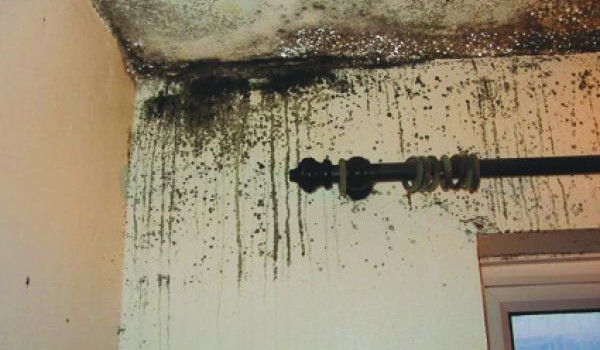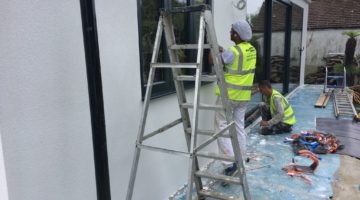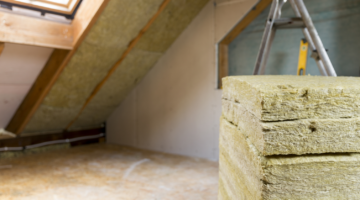
Research by the Debt Advisory Centre has revealed some startling facts about fuel poverty in Britain and the extent to which people are struggling to pay their fuel bills
What is Fuel Poverty and how big is the problem?
Put simply, fuel poverty is widely recognised as being where more than 10% of a household’s income is used to pay for fuel (usually gas and electricity). The figures released by the Data Advisory Centre are quite shocking and reveal the extent of the problem facing the government.
Around 4 million adults in the UK are in gas, electric or water bill arrears, and even more startling, 13 million have avoided paying a utility bill in the past because they couldn’t afford it, and a significant portion of these are more than 3 months behind on their bills.
It is quite a difficult task to reduce these figures. Gas and electricity prices are rising above inflation, and well above average incomes, and this problem does not seem to be going away, with high unemployment and social security cuts also exacerbating the issue. Broadly speaking, with incomes unlikely to rise very quickly in the coming years, and further pressure on public expenditure, the best way to tackle this issue is to build and retrofit more energy efficient homes.
The Hills Report
All this information comes on the back of the Hills Report last year, that states 200,000 more people are set to be in fuel poverty in the next four years and millions of families could be pushed into even deeper fuel poverty.
The report also highlights some important questions on the measurement of fuel poverty. For example, it expresses the belief that fuel poverty is currently measured in a very unhelpful way and that the number of people affected, and how deeply they are affected, should be split into two statistics:
- It suggests the definition of fuel poor household should be one that has required fuel costs that are above a pre-determined median level and;
- Were they to spend that amount, they would be left with a residual income below the official poverty line.
Perhaps this statistic is slightly more difficult to measure, but it is likely to be much more useful than the current 10% of income definition. However the government has been consulting on a change towards this measure since the report was published.
What can be done?
To mitigate homes getting into fuel poverty the EPC SAP rating of property should ideally reach a target of 80 points out of 100. The current UK average is SAP 60, so clearly many of the most vulnerable are overpaying on fuel bills in their grossly inefficient properties.
Around 23% of those in fuel poverty are living in social housing, and one of the key provisions from the report is the push for the Energy Company Obligation (ECO) to include social housing. This is now the case and along with the Green Deal, will help improve the situation for thousands of fuel poor people.
Is the Green Deal and ECO enough to tackle fuel poverty?
There is a limit to the amount of ECO money available (£1.3bn per year), and all the regions of the UK are pressing to get as large a slice of the pie as possible. With ECO in its infancy, there is money available, so it is an ideal time to get your property improved for energy efficiency before the masses get involved.
It is quite clear that creating more efficient properties is a much more cost effective and long term solution than trying to regulate energy companies to drop prices when clearly the only way is ‘up’ going forward.
The Green Deal and ECO should ensure that a significant number of fuel poor households will be able to better afford their winter fuel bills and have a lasting solution to mitigate them from the effects of energy poverty. However more could be done. For example a study by Cambridge Econometrics said: if the Government invested a larger slice of public expenditure into a more extensive energy efficiency retrofit programme it would bring about a greater economic stimulus compared to other infrastructure spend.
What else can be done if you are in fuel poverty?
Apart from getting yourself a Green Deal and ECO assessment, there are a few things you can do to help yourselves:
- Make sure you keep paying your bills if you are in arrears. The worst thing to do is to ‘give up’, as this will just grow your debt, and could force the energy companies to install a pre-payment meter at your cost.
- Speak to the utility provider and see if you can get help from one of their charities.
- Use Uswitch to find a cheaper energy deal.
- Prepayment meters are an option if you have tried all other means. They can be more expensive, but they do prevent the utility company from harassing you, and often you can pay off your debt on the meter as well.
- Get professional debt advice from organisations like the debt advisory centre.
- Visit your local citizens advice bureau
- Give us a ring and we will advise about cheap and easy ways to help lower your energy bills.
Despite the fact it’s summer, don’t wait to take action!
It might seem an odd time of year to start talking about fuel poverty: The sun is trying to break through, the room heaters are going away for the summer, windows are left open to cool the bedroom at night. Yet it is the ideal time to do something about it.
It does take some time to get insulation fitted, or get a new boiler installed. Getting from Green Deal Assessment through to installation can take a few months, so get yourselves sorted out now, before the cold weather makes a return and you get caught.
References
1. Debt Advisory Centre Research: www.debtadvisorycentre.co.uk
2. Hills Report: Getting the Measure of Fuel Poverty
3. Consumer Focus: Jobs, Growth and Warmer Homes












The problem of fuel poverty will get worse before it gets better. The main problem is that for the majority of the British public, our homes may be draughty, but just not draughty enough, and our energy bills may be high, but just not high enough.
Attitudes will start to change when energy bills start to become unaffordable for typical households. We nearing this point. We will then start to see higher sustainable construction standards being introduced, greater take-up of initiatives like the Green Deal, homes with high energy efficiency levels commanding a premium in house sales, and so forth.
I absolutely agree with your comment David. Prices are getting to the point where everyday folk are finding them unaffordable. One of the major problems is that the Government has no energy generation succession planning in place (no plans to replace lost capacity – both coal and nuclear), we are going to have to import both gas and electricity and as the proportion of imported fuel increases, this will drive energy prices up at a much faster rate than we are currently experiencing.
I think therefore if we can help people become more energy efficient now, then they can prepare themselves better for this.